Related Research Articles

The Bangorian Controversy was a theological argument within the Church of England in the early 18th century, with strong political overtones. The origins of the controversy lay in the 1716 posthumous publication of George Hickes's Constitution of the Catholic Church, and the Nature and Consequences of Schism. In it, Hickes, as Bishop of Thetford, on behalf of the minority non-juror faction that had broken away from the Church of England after the Glorious Revolution, excommunicated all but the non-juror churchmen. Benjamin Hoadly, the Bishop of Bangor, wrote a reply, Preservative against the Principles and Practices of Non-Jurors; his own Erastian position was sincerely proposed as the only test of truth.

Henry King was an English poet who served as Bishop of Chichester.

Edward Reynolds was a bishop of Norwich in the Church of England and an author. He was born in Holyrood parish in Southampton, the son of Augustine (Austin) Reynolds, one of the customers of the city, and his wife, Bridget.
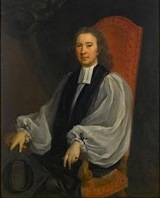
Richard Willis (1663–1734) was an English bishop.
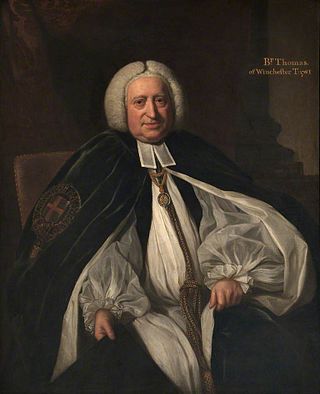
John Thomas was an English bishop.
Thomas Horton D.D. was an English clergyman, Professor of Divinity at Gresham College in London, and President of Queens' College, Cambridge.

Richard Frankland (1630–1698) was an English nonconformist, notable for founding the Rathmell Academy, a dissenting academy in the north of England.
Obadiah Grew was an English nonconformist minister.
William Jane (1645–1707) was an English academic and clergyman, Regius Professor of Divinity at Oxford from 1680.
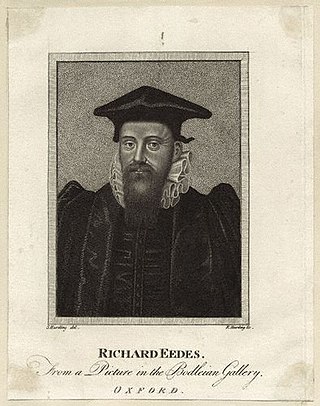
Richard Edes (1555–1604) was an English churchman. He became Dean of Worcester, and was nominated one of the translators for the Authorised King James Version, in the Second Oxford Company, but died in the earliest stages of the project.
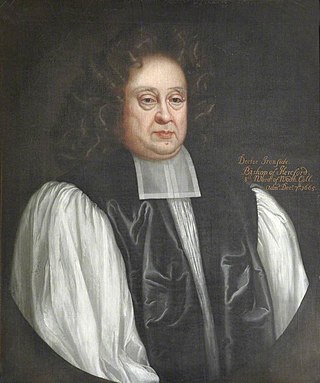
Gilbert Ironside the younger was an English churchman and academic, Warden of Wadham College, Oxford, from 1667, Bishop of Bristol and Bishop of Hereford.
John Alexander was an Irish Presbyterian minister.
Lewis Atterbury D.D., the elder was an English clergyman and writer.
Edward Gee (1613–1660) of Eccleston was an English Presbyterian minister, active against the government in the late 1640s.
Samuel Thomas (1627–1693) was an English nonjuring clergyman and controversialist.
Paul Cardale was an English dissenting minister.
Richard Gardiner (1591–1670) was an English divine.
Clement Barksdale was a prolific English religious author, polymath and Anglican priest. He lost his London parish in the English Civil War, but gained Gloucestershire livings at the Restoration and taught at a private school.
Anthony Freston, né Brettingham (1757–1819) was an English Anglican clergyman.
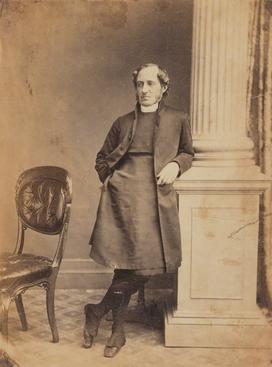
Robert Eden was a British Anglican bishop. He was Bishop of Moray, Ross and Caithness and Primus of the Scottish Episcopal Church.
References
- ↑ 2 Sam. iii. 36
- . Dictionary of National Biography . London: Smith, Elder & Co. 1885–1900.
- Attribution
![]() This article incorporates text from a publication now in the public domain : "Eedes, Richard". Dictionary of National Biography . London: Smith, Elder & Co. 1885–1900.
This article incorporates text from a publication now in the public domain : "Eedes, Richard". Dictionary of National Biography . London: Smith, Elder & Co. 1885–1900.